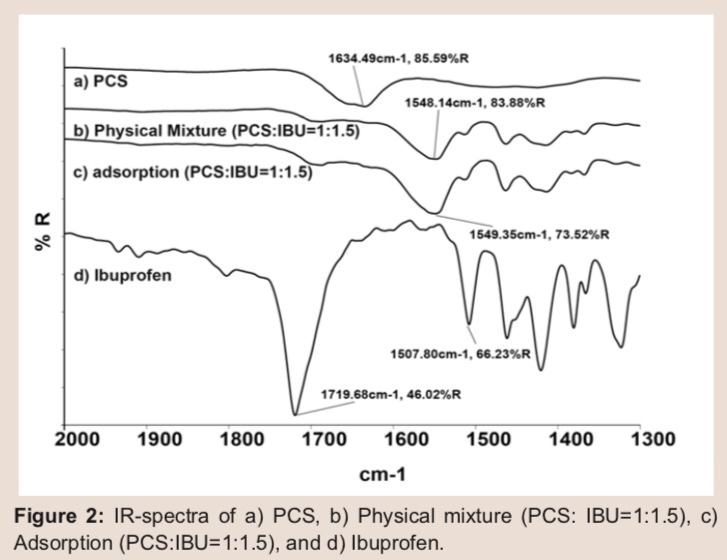Preparation and Evaluation of Ibuprofen Solid Dispersion Tablets with Improved Dissolution and Less Sticking Using Porous Calcium Silicate

The aim of this study was to prepare and evaluate Ibuprofen (IBU) solid dispersion tablets with improved dissolution and less sticking using Porous Calcium Silicate (PCS). Solid dispersion granules were prepared using water-based solid dispersion and water-retained PCS with the wet granulation method and a high-speed agitation granulator. We attempted to use four binders [Hydroxypropylcellulose (HPC), dextrin, maltitol, and xylitol] to prepare the granules; however, HPC could not be used. After 1h of continuous tableting using a rotary machine, sticking was estimated by a visual inspection of all tablets and photographs of the upper punches with a digital camera. All prepared tablets demonstrated quick disintegration and dissolution. From the results of DSC and PXRD studies, IBU may exist in an amorphous form in the adsorption solid dispersion and the granules. From FT-IR studies, IBU appears to interact with PCS through a salt formation between the COO- groups of IBU and the Ca2+ ions of PCS. To investigate differences in binders on the sticking problem, DSC, NIR spectra, and bulk density were measured. From these results, we speculated that the primary localization of the specific binder in the PCS pores may differ among binders, with this localization affecting the sticking property.
Download full article here: jpp-2327-204x-06-0027-1.pdf
Hirai N, Takatani-Nakase T, Takahashi K. Preparation and Evaluation of Ibuprofen Solid Dispersion Tablets with Improved Dissolution and Less Sticking Using Porous Calcium Silicate. J Pharmaceu Pharmacol. 2018; 6(1): 8.

